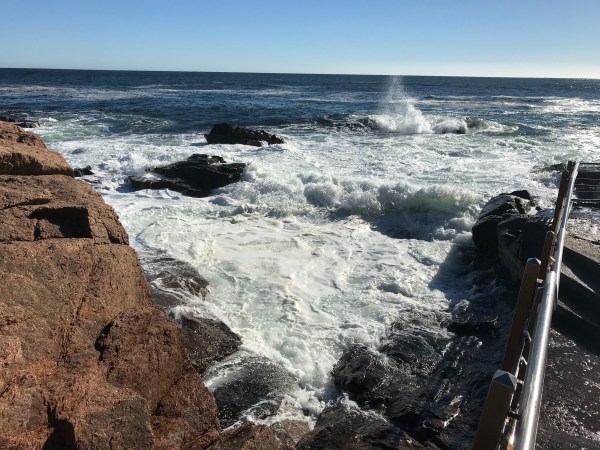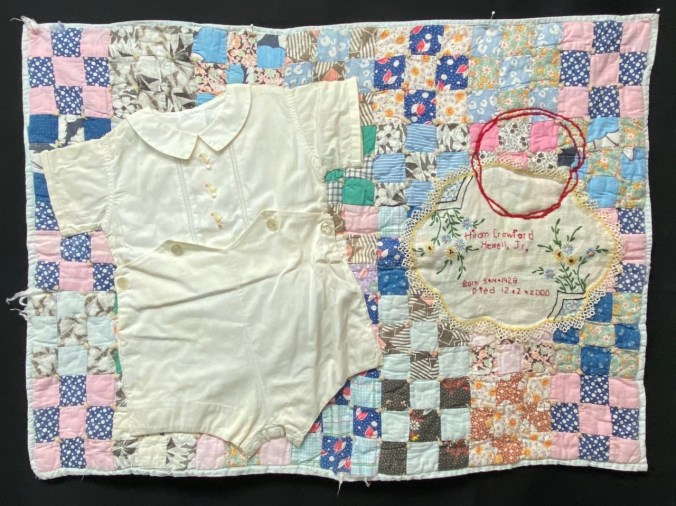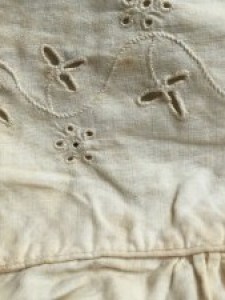
April 5, 1947
Mother and Daddy (Yea Yea and Car Car to the Grands and Great Grands) got married in the Fayette County GA jail. yes, really. Granddaddy (Mother’s daddy) was Sheriff, you see, and in those days voters elected the Sheriff and taxpayers got the family – especially the wife – for free to cook, clean, and make sure the prisoners had freshly laundered white shirts and pants with the black strip down the side.
Though I love the story about them getting married in the jail, Mother did not find it charming at all. So 26 years later when The Engineer and I decided to publicly say “I sure will!”, I told Mother to plan and host the wedding she always wanted because all that mattered to me is that I got to spend the rest of my life with this man . . . and that we had watermelon at our reception. Mother went all out, hiring caterers (who brought delicious watermelon, attractively served), planting snapdragons (something she’d always wanted but never could seem to get around to it till she had a big deadline), and her front door – usually ignored by people who preferred to save steps and instead come in through the back door under the carport – got used! At the end of the night, her smile was as big as her exhaustion.
April 5, 1973 (the fourth day anniversary of our engagement)
So there we were necking – I mean SITTING – on the gorgeous blue one-piece L-shaped sofa in the living room, The Engineer and I, talking about plans for the next weekend when I noted that I had to go to a wedding shower for a friend, also noting that as an introvert of the first order, showers are not my favorite type of gathering. “Well,” he said, playfully tapping my nose with his finger, “when we get married, you’ll have to go to lots of showers.”
Caught completely by surprise, I sat upright, leaned away from him, and noted the obvious, “You haven’t asked me yet.” I. just wanted to make sure this Atlanta boy knew the correct order of things. They might, after all, do things differently in the big city, but he was in the country now, and we did not make assumptions about such things as being the lead actors in a wedding.
“I know,” he said, obviously pleased with himself, and taking a better position to see my reaction.
I picked him up met him 8 weeks before when a high school friend and I ventured into the bar where he worked weekends, drawing beer, and I took one look at him in that brown leather floppy-brimmed hat and knew that very night that this is who I wanted to go through life with. I knew I wanted to spend the rest of my life necking sitting beside this adorable, funny, brilliant man, but even I hadn’t had time to start planning how the engagement and consequently the wedding would go.
Finally, he slid off the low sofa, got on one knee, took my hands in his and asked, “So will you?”
“Have you asked Daddy?”
“No, I wanted to ask you first.”
“You still have to talk to Daddy, but YES I WILL!!!” I said (and I didn’t cry).
That was March 31, 1973.
On April 1, 1973, we were sitting (not necking this time, just sitting, I promise) in the swing in the backyard when he had another good idea: “Why don’t we promise not to tell anybody just yet?” he asked, an idea that was fine with me because I was sure . . . and not sure. You know? We decided to keep it a secret for a while . . . which turned out to be less than 24 hours!
And the rest, as they say, is 51 years of history.
April 5, 2023
The 8 month anniversary of the day Mother took her last earthly breath. It seems like this morning, and it seems like my whole life ago. Grief still has its boot on my neck. I now cry at the most inane things. Sometimes I don’t even know what broke the dam and allowed the tears to flow.
David Kessler who studied death, dying, and grief alongside Elizabeth Kubler-Ross says the number one need of a person grieving is to have someone bear witness to their grief. I feel that strongly, deeply, near constantly, but i keep my lips zipped because most people are uncomfortable talking about such subjects deemed “sad” and “negative” and what I want to do more than anything is make people smile. So yea, I turtles in soon after that last breath, retreating to my shell and pulling down the black-out curtains. I stay away from social media, talk to only 3 people: a cousin who’s like my Big Sister, my friend Laura, The Engineer, daughter Alison, son Kipp, and daughter-in-law Marnie.
I know that’s more than 3 people – such is the thinking style of a #BrainOnGrief. I’m just glad I caught it here. Usually it’s weeks after before I see some embarrassing goof.
That’s another thing: my brain is mushy.
I can’t seem to find ground under my feet.
I spend more time in bed than ever before. Bed therapy, I call it.
I’m exhausted all the time – and I do mean all the time. Grieving is exhausting.
Even now I’m embarrassed about what I’ve told you and fear I sound like I’m auditioning for one of those tv commercials for insurance where the fella is trying to teach adults how to be young by getting them to cease and desist doing all sorts of things – like telling your life story to complete strangers! (Personally, I think I’d be a shoo-in for that role.) (And several of the other behaviors the dude is trying to eradicate in the name of not embarrassing your children.)
I binge read grief memories, seeking the magic key or password that will allow me to escape. Just last night I started reading a book on happiness. Joy is still way too far out of reach, but happiness? I might one day find my way back there. I have a plan. I’ll tell you more next time. Right now, I feel a bed therapy session coming on. Thanks for being here. Thanks for listening reading.











































Other Places to Find Us